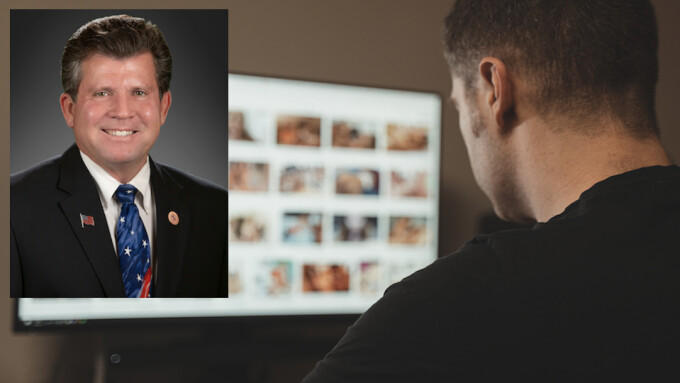PHOENIX — The Arizona state legislature’s version of the age verification bills being sponsored around the country by anti-porn religious conservative activists continues to move forward, despite bipartisan objections and serious concerns raised by free speech advocates.
Authored by Republican Rep. Tim Dunn, HB 2586 “requires websites with material deemed ‘harmful to minors’ to verify that their visitors are 18 or older,” the Phoenix New Times reported. “Any website failing to comply could be sued for damages ‘that result from a minor accessing the material.’”
HB 2586 is “barreling toward passage,” a source familiar with the process told XBIZ, “in spite of some of the most active opposition to any of these copycat state bills. Major issues have been raised by both parties and they have not been addressed by the sponsors.”
Dunn’s bill has now passed out of committees in both the Arizona House and Senate, and is headed toward a Senate vote.
Free Speech Coalition Director of Public Affairs Mike Stabile traveled to Arizona twice earlier this year, to testify before both the House Judiciary Committee and the Senate Committee on Transportation, Technology and Missing Children, against HB 2586 and its counterpart SB 1125, which is sponsored by Republican Sen. Wendy Rogers. The trade organization also sent formal letters to committee members, outlining its opposition to the measure.
“The ignorance and misinformation surrounding age-verification bills like SB 1125 is astounding,” Stabile posted on X. “If we don’t stand up for our rights — and the rights of consumers — who will? SB1125 sounds good enough: keep minors from accessing porn sites. But to do so, it effectively blocks the vast majority of adults from accessing those sites as well. Meanwhile porn on pirate sites and social media sites are untouched. It also gives power to the state to effectively censor — by requiring ID, face scans and background checks — education, art and literature, if it talks about sex or sexuality.”
Commenting on Stabile’s appearance in front of the Arizona Senate committee, FSC posted that SB 1125 “passed out of committee, but in a surprisingly tight vote that showed the power of actually being there.”
Reviewing HB 2586, veteran Arizona free speech journalist Stephen Lemons wrote in the Phoenix New Times, “It’s easy to see why even some Republican legislators have qualms about it.”
The bill, he added, “would apply if one-third or more of a website’s total content is ‘harmful to minors,’ a category that covers a broad swath of written, spoken and visual communication. The bill defines ‘harmful to minors’ as ‘descriptions of actual, simulated or animated’ displays or depictions of a variety of sex acts and body parts. The sex acts and body parts include sexual intercourse, masturbation, sodomy, flagellation, oral copulation, ‘excretory functions,’ pubic hair, anuses, vulvas, genitals or a ‘female breast’s nipple.’ Male nips are apparently A-OK. Nor can the website describe or depict ‘exhibitions or any other sexual act.’ The word ‘exhibitions’ is undefined. Also verboten is the description of ‘touching, caressing or fondling of nipples, breasts, buttocks or genitals.’ Which means no images or written descriptions of women breastfeeding their children.”
- Religiously motivated anti-porn lobby NCOSE, whose aim is the eradication of all adult content, sent its senior policy advisor, Peter Gentala, to advocate in favor of the controversial age verification bills.
Main Image (Inset): Arizona Rep. Tim Dunn (R)







